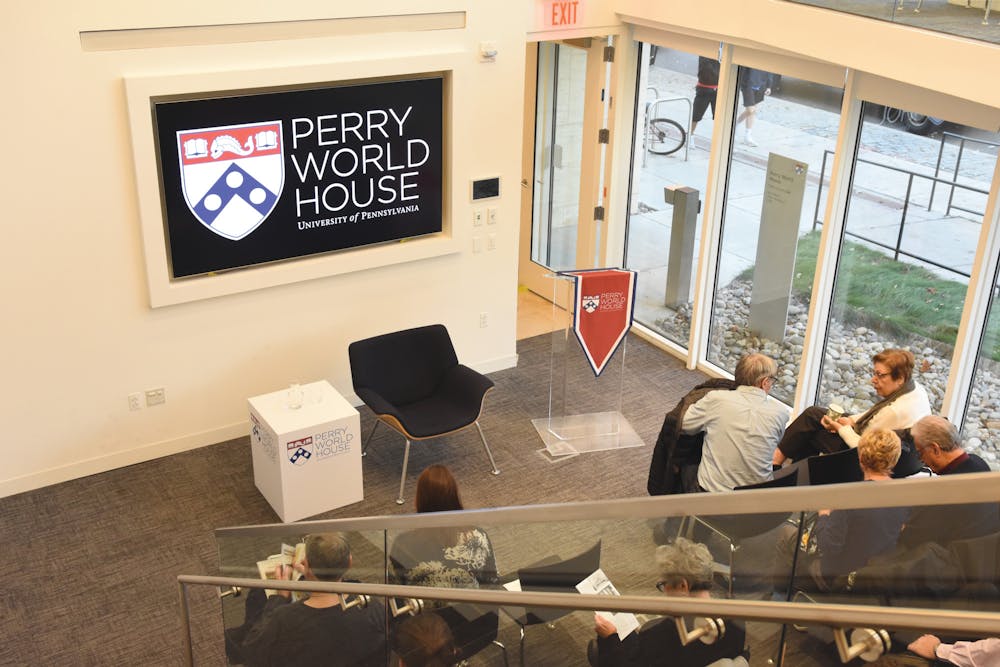
Columnist Mariana Martinez discusses the role of international law through the lens of the Venezuelan political crisis.
Credit: Isabella CossuThe Venezuelan crisis has revealed the considerable gap between international law, legitimacy, and sovereignty. As Nicolás Maduro, Venezuela’s president, is sworn in for his third term after many obviously rigged elections, the lack of a solid framework for international law has become evident. Maduro’s regime has not only been actively violating human rights by persecuting political opposition and limiting access to health care, but he has also violated all democratic principles.
The international community has taken little to no action to stop Maduro from taking possession of his office yet again. While 1968 Wharton graduate and President-elect Donald Trump and other Latin American politicians have expressed their support to the rightful winner of the presidency, Edmundo González Urrutia, the encouraging messages or plans to travel to Venezuela in support of González mean nothing in the face of this crisis. All their talk has amounted to no action.
In these types of cases, one would hope that international law serves its purpose. There are well-known cases when the United Nations Security Council has authorized the use of force to help liberate countries from these kinds of crises. For instance, in 1990, the U.N. authorized a military coalition to liberate Kuwait from Iraqi forces. However, for years, Venezuela has been ignored by these same international organizations, mainly under the argument of sovereignty. However, I have to wonder: How much more important is fake sovereignty over human rights and democracy? How effective is the human rights framework so far established? It seems not really.
Autocratic regimes are becoming more and more common, filling a void left by a retreating United States and an unresponsive international community. For example, China’s power has become increasingly relevant in the international scene. The country has not only reached high levels of development, but it has also seen an increase in economic growth and power. However, the Chinese government is characterized, similarly to Venezuela, by the crushing of political opponents and the neglect for human rights. The existence of these regimes is proof of the failure of countries around the world to protect the innocent.
Intervention in Venezuela is mandatory. Maduro is not the rightful president of Venezuela, and he is already claiming the need for a new constitutional reform. This reform will only enhance his own power, establishing laws that will continue to violate human rights. While military intervention is perhaps not the most desirable option, it seems to have become the only option as U.S.-imposed sanctions have done nothing to improve the situation, and international organizations remain unresponsive.
The silence in a highly globalized world is inadmissible. The failure of international law affects not only the innocent but also trade and other sociopolitical phenomena, like massive migrations. It shouldn’t matter if it is a country in the south or if it’s a large or small country, the international community should show its support in an effective manner. As students, we are the generation that will inherit these turmoils, and it is crucial to be aware of how the current international system is failing in order to generate change. It’s time to change the system.
As the Venezuelan crisis unfolds and worsens for millions of people, it is worth questioning: How long until the international community puts a stop to dictator Maduro? And truly, how legitimate can sovereignty be when a government violates human rights and democracy so openly?
MARIANA MARTINEZ is a College sophomore from Bogotá, Colombia. Her email is marmari@sas.upenn.edu.
The Daily Pennsylvanian is an independent, student-run newspaper. Please consider making a donation to support the coverage that shapes the University. Your generosity ensures a future of strong journalism at Penn.
Donate



